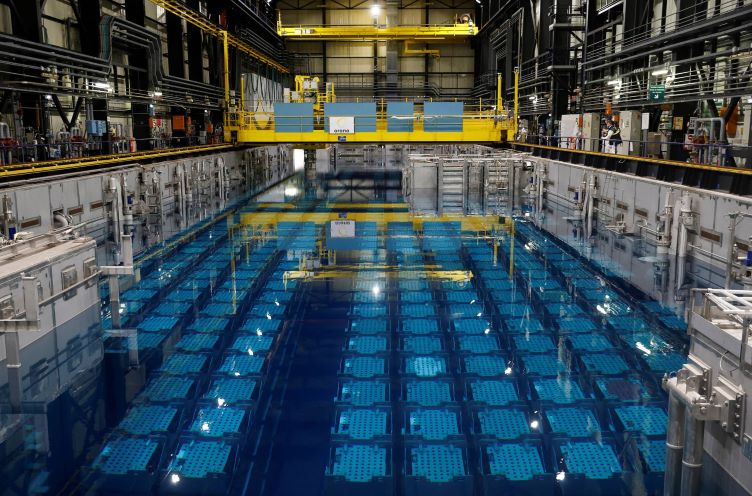The first thing that springs to mind when we hear the word nuclear waste, dating back thousands of years, is the grave threat it poses to the environment. However, what if this supposedly useless material was in fact a resource with unrealized potential?
I’m going to investigate the concept of recycling nuclear waste today since it’s a fascinating concept and France has incredible recycling technology that turns nuclear waste into a valuable resource.
So, let’s dive into detail!
The Surprising Truth About Nuclear Fuel:
We still remain blinded to the astonishing fact that nuclear fuel rods retain more than 90% of their energy after disposal. “This is such a crazy number!” since we typically only consume nuclear fuel for a few years at a time. For tens of thousands of years after that, it just sits there and continues to be radioactive. The worst part is that spent nuclear fuel can actually be recycled up to 96% of the time.
Surprisingly, though, not many nations are recycling radioactive waste. I was curious to know why.
France’s Commitment to Nuclear Recycling:
The world’s largest nuclear power is found in France. Nuclear power facilities provide about two thirds of the country’s electricity. Additionally, all of the nation’s spent nuclear fuel is shipped here for recycling. The world’s largest nuclear firm, Orano, is based in the remote village of La Hague, where the activity is centered
Two thirds of the 24,000 rooms in this maze-like complex are underground. A 110-ton cask of spent nuclear fuel is delivered to the facility each day and is prepared for conversion.
The Intricate Recycling Process:
Taking the fuel rods out of the transportation casks is the first step in the recycling journey. These rods are redioactive and will be kept in a cool water pool for a period of five to seven years. When these roads have cooled, they will be prepared for the separating process.
Fundamentally, fission, often known as splitting atoms, produces nuclear power. A particular variety of uranium is very good at splitting. It disintegrates when encountering a neutron, releasing more neutrons.
Other uranium atoms were struck by these neutrons and split as a result, starting a chain reaction. Heat is produced inside the reactor core when atoms split. Following the boiling of the water due to the heat, steam is created, which powers a turbine.
There is a lot of trash produced by the chemicals, as well as by all the other tools and supplies you use.
It’s not as simple as using tweezers to pull something out. Furthermore, MOX fuel that has already been recycled isn’t being recycled again. So, after a few more years, it too turns into rubbish.
The Challenges and Costs of Recycling:
Nuclear recycling has many advantages, but it also has drawbacks. The procedure is costly and highly specialized, involving substantial infrastructure investment, cutting-edge technology, and stringent security precautions. Simply said, using mined uranium only once before discarding it is more economical for the majority of nations.
The company that runs all of the nation’s nuclear power facilities. France has just committed to that plan through 2040. However, they are currently recycling a lot more than they can put to use.
The Global Perspective on Nuclear Recycling:
The question now is, why aren’t many other nations recycling nuclear waste? One important consideration in determining how recycling can provide a response to this question is the interplay of cost, complexity, and security issues. Recycling produces plutonium that has been refined and is a necessary component of nuclear weapons.
Other nations, like as China, Russia, and India, are also investing in nuclear recycling in an effort to keep up with the trend. However, they are still just making modest efforts.
The Future of Nuclear Waste:
The nuclear story is far from done. Recycling can help cut down on waste and unlock energy potential, but the issue is not entirely resolved. All of it will make dealing with nuclear waste more difficult for future generations.
Recycling is still an essential component of energy strategies in nuclear-powering nations like France, nevertheless. They are not only safeguarding their energy future but also setting the standard for responsible nuclear technology by converting waste into a resource.

















